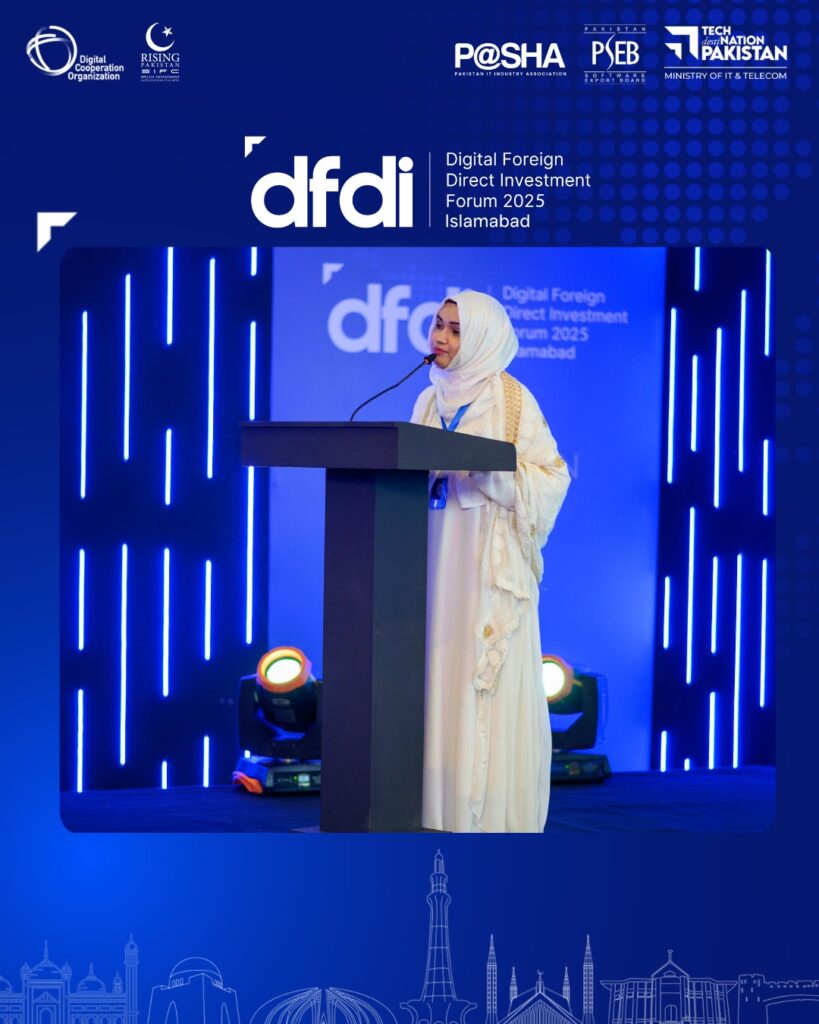Table of Contents
DFDI in Energy Sector Pakistan: Unlocking Investment Opportunities for Sustainable Growth
DFDI in energy sector Pakistan is rapidly gaining attention as the country seeks to overcome its energy deficit and transition towards sustainable power sources. Foreign Direct Foreign Investment (DFDI) has become a critical driver in modernizing Pakistan’s energy infrastructure, expanding capacity, and introducing innovative technologies. This article will explore the significance of DFDI in Pakistan’s energy sector, the benefits it offers, government policies, challenges, and the road ahead for investors.
Understanding DFDI in Energy Sector Pakistan
DFDI, or Direct Foreign Direct Investment, refers to the investment made by foreign entities directly into Pakistan’s energy projects. This includes investments in power generation, transmission, renewable energy projects, and energy infrastructure development. The inflow of DFDI into the energy sector Pakistan is vital for bridging the energy supply-demand gap, improving efficiency, and boosting economic growth.
Pakistan’s energy sector offers diverse investment opportunities ranging from thermal power plants to solar and wind energy farms. With increasing government incentives and regulatory reforms, DFDI in energy sector Pakistan is expected to accelerate over the coming years.

Importance of DFDI in Energy Sector Pakistan
The importance of DFDI in energy sector Pakistan cannot be overstated, especially as the country strives to meet its growing energy demands, support economic development, and transition towards cleaner and more sustainable energy sources. Foreign Direct Foreign Investment plays a pivotal role in transforming Pakistan’s energy landscape for multiple reasons:
1. Bridging the Energy Gap
Pakistan currently faces a significant energy shortfall, leading to frequent power outages and load-shedding, which negatively impact industries, households, and overall economic productivity. DFDI brings essential capital to finance large-scale power projects, including thermal, hydro, solar, and wind energy, helping to expand generation capacity and stabilize the national grid.
2. Introducing Advanced Technology and Expertise
Foreign investors introduce cutting-edge technologies and operational expertise that improve the efficiency, reliability, and environmental sustainability of energy projects. This technology transfer helps modernize Pakistan’s energy infrastructure, reduces losses, and enhances grid management capabilities.
3. Reducing Dependence on Imported Fuels
By attracting investment in indigenous energy resources such as renewables and hydropower, DFDI helps Pakistan reduce its reliance on expensive imported fuels like oil and coal. This shift not only improves the country’s trade balance but also enhances energy security by diversifying the energy mix.
4. Promoting Sustainable and Renewable Energy
The global trend toward clean energy is mirrored in Pakistan’s energy policies, which encourage foreign investment in solar, wind, and hydro projects. DFDI supports the country’s commitment to reducing carbon emissions and mitigating climate change impacts, aligning with international environmental agreements.
5. Stimulating Economic Growth and Job Creation
Energy is a backbone of economic development. Increased foreign investment in the energy sector fosters industrial growth by providing reliable power, which in turn attracts manufacturing, services, and technology industries. Additionally, energy projects generate thousands of jobs, from construction to operations, boosting local economies and livelihoods.
6. Enhancing Infrastructure and Grid Stability
Pakistan’s transmission and distribution networks require modernization to reduce technical losses and improve supply reliability. DFDI facilitates infrastructure upgrades, smart grid deployment, and better energy management systems, which are essential for integrating renewable energy and ensuring consistent power delivery.
7. Attracting Additional Investment and Partnerships
Successful foreign investments in energy create confidence for further inflows of capital from international financial institutions, climate funds, and private equity. These investments often lead to strategic partnerships, joint ventures, and knowledge exchange, multiplying the positive impact on the sector.
8. Aligning with Government’s Vision for Energy Security
The government of Pakistan recognizes the importance of energy self-sufficiency and sustainable development. DFDI aligns with national policies such as the Alternative Energy Policy and the China-Pakistan Economic Corridor (CPEC), which emphasize foreign collaboration for rapid energy sector growth.
Government Policies Supporting DFDI in Energy Sector Pakistan
Pakistan’s government has implemented several policies and incentives to encourage DFDI in the energy sector:
1. Liberal Foreign Investment Policy
The government allows 100% foreign ownership in energy projects, enabling foreign investors to fully control their investments.
2. Tax Incentives and Subsidies
Projects in renewable energy sectors enjoy tax holidays, reduced duties on imported equipment, and subsidies to improve financial viability.
3. Special Economic Zones (SEZs) for Energy
Certain SEZs are designated for energy projects with additional benefits like simplified licensing and infrastructure support.
4. Regulatory Reforms
Streamlined approval processes and transparent regulatory frameworks help reduce investment risks.
Key Areas of DFDI in Energy Sector Pakistan
Thermal Power Plants
Despite the push for renewables, thermal power remains a significant part of Pakistan’s energy mix. DFDI is critical for modernizing existing plants and building new ones with higher efficiency and lower emissions.
Renewable Energy Projects
Pakistan’s vast solar and wind potential is attracting foreign investors. DFDI in solar farms, wind parks, and hydropower projects is rising, supported by government incentives and international climate finance.
Transmission and Distribution Infrastructure
Investment is also needed to upgrade transmission lines, reduce losses, and improve grid stability.
Benefits of DFDI in Energy Sector Pakistan for Investors
Investing through DFDI in energy sector Pakistan offers numerous advantages for foreign investors, making it an attractive destination for capital looking to tap into the expanding energy market. Here are some key benefits that underline why investors should consider Pakistan’s energy sector:
1. Access to a Rapidly Growing Energy Market
Pakistan’s population exceeds 230 million and is growing steadily, driving a surge in energy demand across residential, commercial, and industrial sectors. The government’s commitment to expanding power generation capacity and upgrading infrastructure ensures that investors have ample opportunities to participate in a fast-evolving market with strong long-term growth prospects.
2. Attractive Government Incentives and Support
The Pakistani government actively encourages foreign investment in the energy sector through a range of fiscal and non-fiscal incentives, including tax holidays, customs duty exemptions on imported equipment, subsidies for renewable energy projects, and relaxed foreign ownership restrictions. These measures help improve project profitability and reduce investment risks.
3. Competitive Returns on Investment
Energy projects, particularly in renewables like solar and wind, often benefit from long-term power purchase agreements (PPAs) with the government or state utilities. These contracts provide predictable revenue streams and enhance the financial viability of investments, allowing foreign investors to secure stable and attractive returns.
4. Strategic Geographic Location
Pakistan’s location at the crossroads of South Asia, Central Asia, and the Middle East provides investors with strategic advantages for regional energy trade and cooperation. Projects developed through DFDI can potentially serve cross-border power transmission, unlocking additional revenue streams and regional influence.
5. Opportunity to Participate in Renewable Energy Transition
Pakistan’s ambitious renewable energy targets present a unique opportunity for foreign investors to be part of the global clean energy transition. By investing in solar parks, wind farms, and hydroelectric projects, investors contribute to environmental sustainability while capitalizing on expanding government-backed initiatives.
6. Potential for Public-Private Partnerships (PPPs)
Many energy projects in Pakistan are implemented under PPP models, offering foreign investors a chance to collaborate with local government agencies and enterprises. These partnerships reduce entry barriers, facilitate regulatory approvals, and allow for shared expertise and risks.
7. Diversification of Investment Portfolio
The energy sector in Pakistan spans multiple sub-sectors such as thermal power, hydropower, wind, solar, and transmission infrastructure. This diversity allows foreign investors to spread risk by investing across various types of projects, balancing traditional and renewable energy assets.
8. Enhanced Market Transparency and Regulatory Improvements
Recent regulatory reforms have improved transparency and eased bureaucratic hurdles in energy investments. With clearer policies, protection of foreign investor rights, and streamlined licensing, foreign investors can operate with greater confidence and reduced uncertainties.
9. Long-Term Growth Potential Fueled by Government Initiatives
The government’s focus on sustainable energy development and international commitments under climate agreements have created a supportive environment for foreign investors. With initiatives like the China-Pakistan Economic Corridor (CPEC) enhancing energy infrastructure, investors can expect ongoing opportunities aligned with national development goals.
10. Job Creation and Social Impact
Foreign investors also benefit from the positive social impact generated by their investments, including employment opportunities and community development. These benefits improve the investor’s brand reputation and open doors for future projects in the region.
Challenges Facing DFDI in Energy Sector Pakistan
While opportunities are plentiful, investors should consider certain challenges:
- Political and Economic Stability: Fluctuations can impact investor confidence.
- Regulatory and Bureaucratic Hurdles: Some delays still exist in approvals and clearances.
- Security Concerns: Certain regions may pose security risks.
- Infrastructure Gaps: Energy transmission infrastructure requires modernization.
Proactive engagement with local stakeholders and risk mitigation strategies can help overcome these challenges.
Recent Success Stories of DFDI in Energy Sector Pakistan
- Major investments by international firms in solar power projects in Sindh and Balochistan.
- Foreign-funded wind energy farms contributing to the national grid.
- Joint ventures for modernization of thermal plants improving capacity and efficiency.
These success stories highlight the potential for profitable and impactful investments.
Future Outlook of DFDI in Energy Sector Pakistan
Pakistan aims to achieve a sustainable energy mix with a significant share of renewables by 2030. The government’s vision coupled with international climate commitments makes the energy sector an attractive destination for DFDI. Areas like green hydrogen, battery storage, and energy efficiency projects are emerging opportunities.

Frequently Asked Questions (FAQs) About DFDI in Energy Sector Pakistan
1. What does DFDI stand for in the context of Pakistan’s energy sector?
DFDI means Direct Foreign Direct Investment, referring to foreign investments directly made in Pakistan’s energy projects.
2. Which energy sectors in Pakistan attract the most foreign investment?
Renewable energy (solar, wind, hydro), thermal power plants, and transmission infrastructure are the major sectors attracting DFDI.
3. What incentives does the Pakistani government offer to foreign energy investors?
Tax holidays, duty exemptions, simplified regulatory processes, and SEZ benefits are key incentives.
4. Are foreign investors allowed full ownership in Pakistan’s energy projects?
Yes, Pakistan allows 100% foreign ownership in most energy sector projects.
5. What are the main challenges for foreign investors in Pakistan’s energy sector?
Political stability, regulatory delays, security issues, and infrastructure gaps are common challenges.
Conclusion
DFDI in energy sector Pakistan is a vital component of the country’s strategy to overcome energy shortages and build a sustainable power future. With growing government support, a wealth of natural resources, and promising market potential, the energy sector offers lucrative opportunities for foreign investors. Understanding the investment landscape, government policies, and challenges is essential for making informed decisions. Investors ready to engage with Pakistan’s energy sector can contribute to the country’s development while benefiting from significant returns.
Follow us on Facebook for Quick Response & Quires – Digital Foreign Direct Investment (DFDI)
